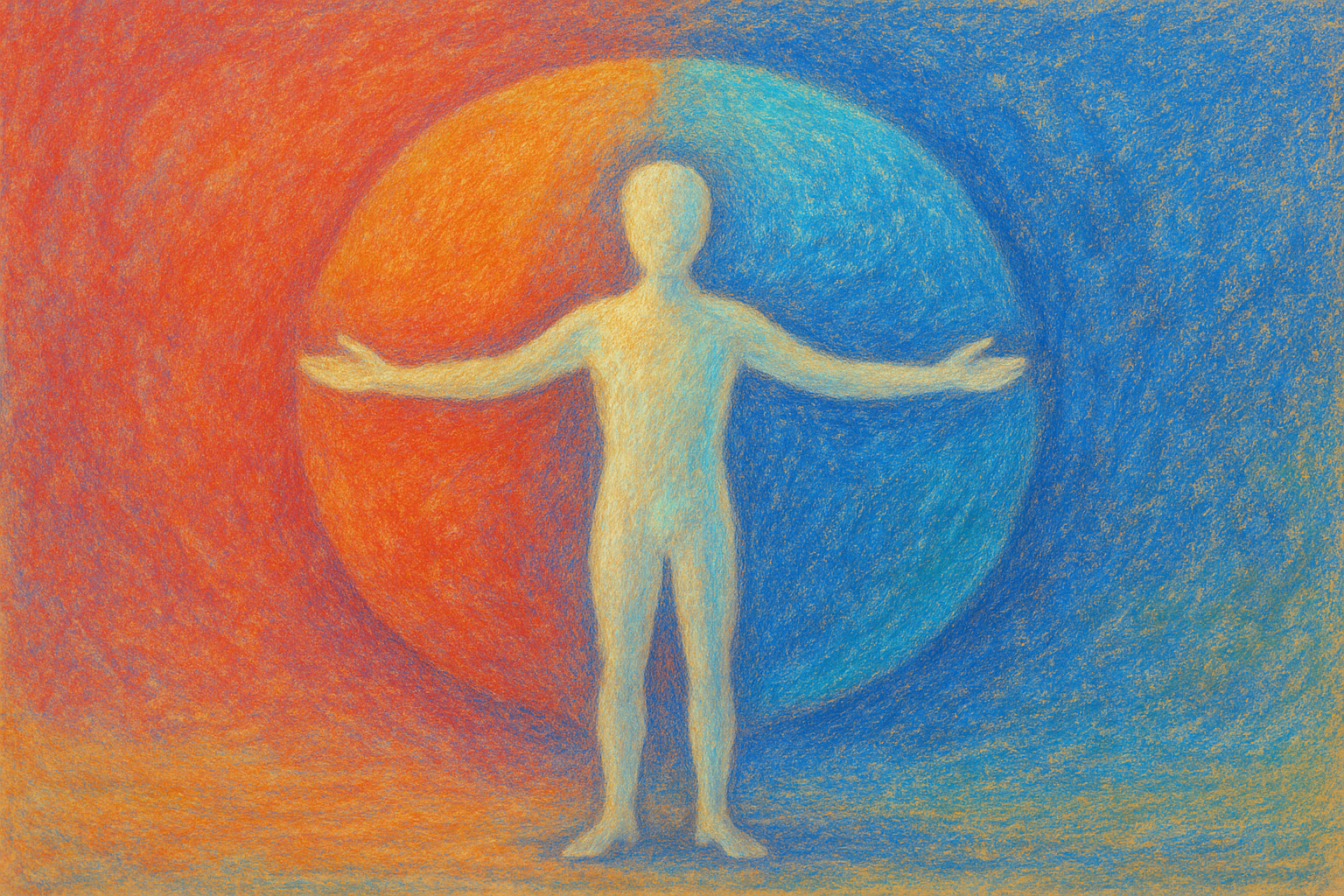“I am the Resurrection”
In John chapter 11, we step into a deeply human moment. Martha is grieving the death of her brother, Lazarus, and she says to Jesus, "I know he will rise again in the resurrection at the last day."
Jesus replies, "I am the resurrection and the life. The one who believes in me will live, even though they die; and whoever lives by believing in me will never die."
Then He asks her, "Do you believe this?"
Martha responds with great faith: "I believe that you are the Messiah, the Son of God, who is to come into the world."
This short exchange touches on four major biblical ideas: Resurrection, the Last Day, the Messiah, and the Son of God. Today, we focus on just one—the meaning of resurrection.
Now, let's be honest: the idea can sound magical, even absurd. And yet, resurrection is the cornerstone of the Christian faith. Without it, Christianity collapses.
So today, I want us to walk through this biblical idea slowly, and see how it changes the way we understand the world around us.
Before we begin, consider this question: How do you view the present world?
- A. "The world is wonderful—I'd like to stay as long as possible."
- B. "The world is broken—and I long for a better world beyond this one."
Hold your answer as we explore the meaning of resurrection.
The Tension We All Feel
If you chose A—"the world is good"—Scripture would agree with you. Genesis 1 celebrates God's creative work. After each stage, God looks and says, "It is good." And after creating humanity in His image, He calls the whole thing "very good." Creation was full of meaning, beauty, purpose, and joy.
But perhaps you chose B—"the world is broken." And Scripture would also agree with you. The Bible is honest about the violence, suffering, and sin that shape human history: the Flood, Sodom, Egypt, exile, and oppressive empires. Our own world looks just as broken when we look at the news.
So the Bible says both: the world is glorious, and the world is wounded.
What ties these two truths together? How do we handle this tension?
The Original Vocation
The answer lies in the human vocation—the calling God gave us in creation. In Genesis 1, God, who is unseen, creates a physical world and places physical creatures—us—within it to be His image-bearers.
This means that through humanity, the world was meant to experience God's blessing, and through humanity, the world was meant to offer praise back to God. In other words, humanity is meant to be the priest in God's creation: to bless creation on God's behalf, and to bring creation's thanksgiving to God.
Psalm 8 says, "You made them rulers over the works of your hands."
The implication is clear and critical: the goodness and spiritual health of this world depend entirely on the faithfulness of humanity as God's image-bearer. But early in Scripture, we see that humanity abandons this holy calling.
God continues His plan through Israel. In Exodus 19, He calls them "a kingdom of priests and a holy nation" (Exodus 19:6). Israel's role was to do for the nations what humanity was meant to do for creation: to show God's character, to bless the nations, and to teach the nations to repent, with the goal of restoring humanity back to its original calling, and ultimately redeeming the entire creation.
The Apostle Paul understood this cosmic perspective. In Romans 8:19–21, he writes that all creation "waits with eager longing for the revealing of the children of God," hoping to be "set free from its bondage to decay." But Israel, like humanity before it, also failed.
The Turning Point: Exile and the Birth of a Hope
This brings us to a key turning point in the story—one that deeply shaped the biblical understanding of resurrection. This section is often unfamiliar to modern Christians, so let's walk through it carefully.
In the Old Testament, clear teaching about resurrection is rare. It is hinted at, but not emphasized. Yet by Jesus' day, belief in resurrection is widespread, especially among the Pharisees. What caused this major shift?
The answer is: the Babylonian Exile.
This moment in Israel's history forced the people of God to confront questions they had never asked so urgently before.
Let's picture the situation: The nation had lost the land God gave them. Jerusalem was destroyed. The Temple—the visible sign of God's presence—was torn down. The people were carried far away into Babylon. They became a tiny minority surrounded by powerful forces pushing them to assimilate.
When a small nation was exiled like this, it disappeared within a few generations. That was simply the pattern of history.
So the prophets who lived during exile—men like Ezekiel and Daniel—were facing a theological crisis: Is this the end? Is God finished with His people? Is the covenant over?
And it is precisely in this moment of despair that the prophets began to speak in a new way. They dared to say something bold, something humanly impossible: Israel will be restored.
Now, think about it. To say this tiny, broken, scattered community would someday return home—to say they would recover their identity, their land, and their covenant life—this was as outrageous as saying a dead person who had turned to dust for decades or centuries would rise from the grave.
So how did the prophets express this hope? They used resurrection language.
Ezekiel 37 is the clearest example, where God says: "I will open your graves and bring you up from your graves... I will put my Spirit within you, and you shall live" (Ezekiel 37:12-14).
The prophet is saying: "You think restoring Israel is impossible? Yes—on human terms, it is impossible. It would take a miracle on the scale of resurrection! To God nothing is impossible."
The Foundation of Grace
But why should God do this? The prophets understood all too well that the painful exile, already spelled out in the covenant, was a punishment they deserved. What right did they have to ask for restoration?
Apparently, their boldness and confidence come from the Torah itself. The prophets remembered how Moses interceded for Israel after the golden calf, when he argued with God that God should restore His people not because they deserve mercy, but because God is faithful to His own name.
Ezekiel says in chapter 36:22-28: "Therefore say to the house of Israel: Thus says the Lord God: It is not for your sake, O house of Israel, that I am about to act but for the sake of my holy name... I will take you from the nations and gather you from all the countries and bring you into your own land."
This may sound surprising to some but grace and mercy are the central ideas in the Old Testament!
The prophets from Moses on down were consistent in one message: We exist not because of our own merit but because of God's relentless grace. God, who is "merciful and gracious, slow to anger, and abounding in steadfast love," (Exodus 34:6) would find a way to heal His children and restore His creation. (Isaish 57:14-19)
The prophets were not fortune tellers. Their greatest contribution was twofold: they preserved the spark of hope for Israel, and they carved out a space for profound repentance. This, in turn, gave birth to a radical faith in God that could transcend any obstacle.
The Final Enemy
But there is one last obstacle, undefeated by even the most faithful: the tyranny of time and death. As Paul puts it in 1 Corinthians 15:26, "the last enemy to be destroyed is death."
Generation after generation proved one inescapable fact: a human lifetime is too short. We all die before seeing God's creation come to its full glory. Even Moses, who lived a full 120 years, after a lifetime of faithfulness, died on the wrong side of the Jordan, seeing the Promised Land but not entering it.
Time and death separate the faithful from the promise they receive from God.
Therefore, resurrection is not just a theological concept. It is the deepest cry coming from the deepest pain of the faithful:
"When your new world arrives, O God of faithfulness, do not forget me! Although I shall return to dust, O God of creation, recreate me! And let me live again, O God of life, so I can stand on your renewed earth and join my voice with the choir of Your creation to praise You for having made us and redeem us!"
The Answer in the Garden
So who can break the power of time and death? Who will carry on from where humanity failed, where Israel failed, and fulfill what the prophets longed for?
This brings us back to the conversation between Martha and Jesus, where Jesus says, "I am the resurrection and the life."
When Jesus died, it looked like the story of disappointment was repeating itself—another promising life cut short. But when God raised Him from the dead, the entire biblical story came together powerfully.
Jesus's resurrection shows that God remembers His faithful ones and that death does not erase us from God's memory. It shows that God's creation project will not fail; Jesus, the perfect image-bearer, fulfills the human vocation. And it shows that we will live to see the restored world; because Jesus lives, the new creation is guaranteed. (Acts 17:31, Romans 8:31-39)
What Does It Mean for Us?
Resurrection is not a fairy tale. It is God's promise that He will not abandon His world—even when we abandon Him.
Martha believed in resurrection on the Last Day. But Jesus says something even greater: "I am the resurrection." By saying that, Jesus made three profound claims:
- He is the restoration. Jesus doesn't just deliver the message of hope; He is the hope.
- He is the grace. If God's resurrection of Israel was an act of undeserved grace, then Christ's resurrection is the ultimate, personal, and final act of that grace. His death paid the price for the failure we deserved, and His life guarantees the future we did not earn. We are raised not by our worth, but by His life.
- He is the true LIFE, starting NOW. He told Martha, "the one who believes in me will live, even though they die; and whoever lives by believing in me will never die." We do not sit around and wait for life to begin; resurrection life begins today, through the Holy Spirit.
Knowing what we know about resurrection, how then should we live today?
Returning to our opening question: Is the world wonderful? Yes. But we should not be blind to our own mistakes. Is the world broken? Also yes. But if we place our hope on escaping this material world for some blissful existence somewhere else, we miss the fullness of the Resurrection, and deny God's declaration that His physical creation was "very good."
The Resurrection teaches us to come to terms with both truths: the world is good, and the world is broken.
Because Jesus is the Resurrection, and He lives today, we don't just pray for a miracle in the distance. We are holding the miracle right now. We have confidence in how the story ends: God will renew His creation and make all things new.
But until then, we are not sidelined spectators. We are participants.
Therefore, trust Jesus—and let His resurrection life flow through you and into the broken world He is healing.

